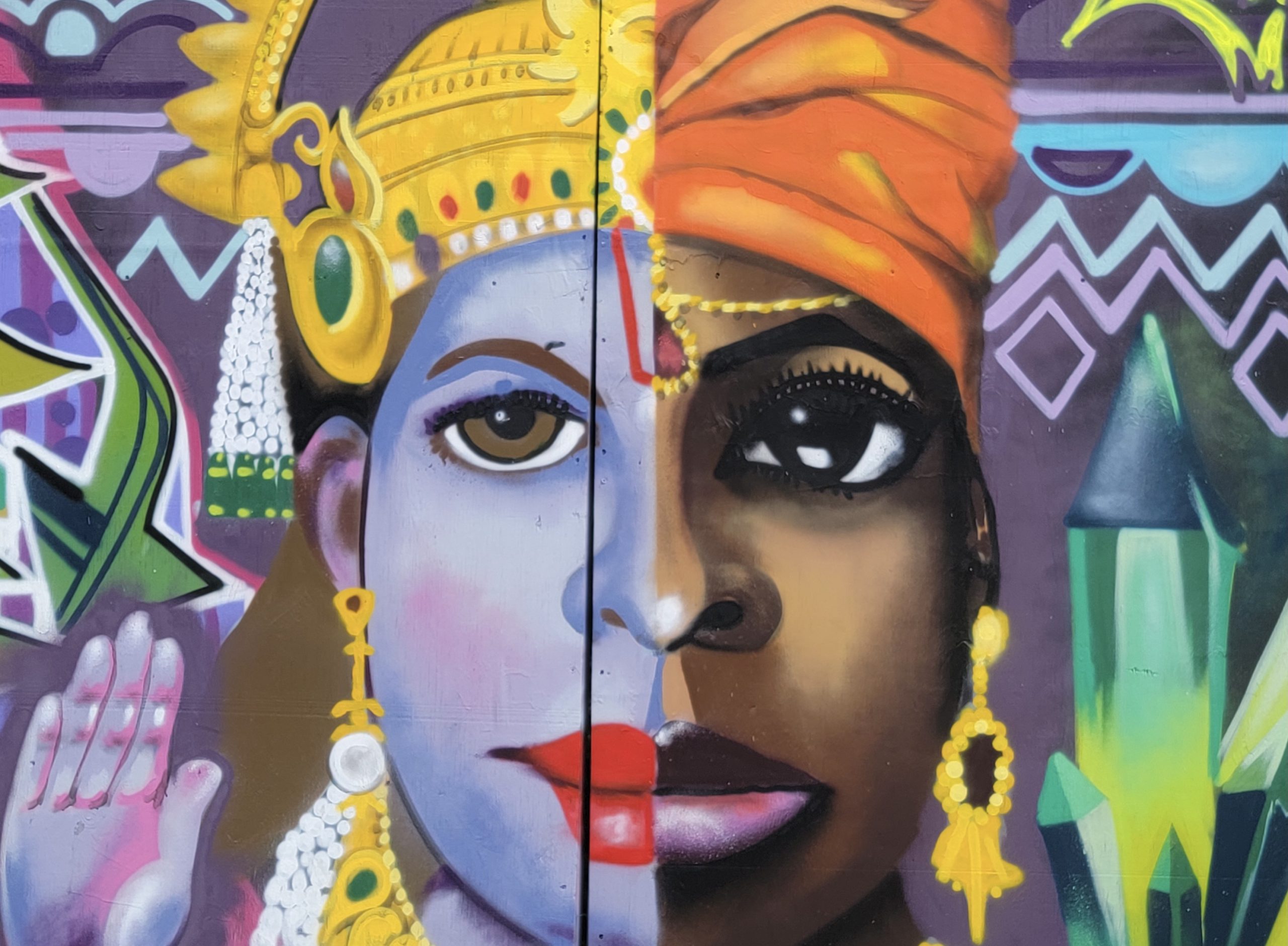Africa holds up a mirror to India
Shobana Shankar's new book, 'Africa, India and the Spectre of Race' (Hurst/Oxford, 2021) explores this complicated history.

Image © Zachariah Mampilly.
In 2017, a spate of attacks against African students in the Indian capital, New Delhi, garnered outrage and headlines around the world. Responding to the controversy, Tarun Vijay, the head of the India-African Parliamentary Friendship Group and a former Member of Parliament from India’s ruling Hindu nationalist BJP, gave an interview to Al Jazeera. Claiming that Indians can’t be racist, Vijay pointed to the darker-skinned populations of South India as proof: “If we were racist, why would the entire South—you know the Tamils, you know Kerala, Karnataka and Andhra—why do we live with them? We have blacks, black people around us.”
Recurring episodes of anti-African violence in India and growing anti-Indian sentiment across the continent reveal the fissures in the carefully crafted narrative of South Asian-African relations. Where once the “Bandung Spirit” held sway, #GandhiMustFall captures the current zeitgeist. Beyond the fiction of Indo-African solidarity, Vijay’s comments unearthed the complicated emotions around India’s view of Africans, and relatedly, Blackness. Terms to denigrate dark-skinned people—Kaalu, Karuppu, Madrasi, Blacky—easily roll of Indian tongues whether referring to Africans or even their own darker-hued family and friends. In response to Vijay’s comments, North Indians on Twitter argued that India is a non-racial society, while many South Indians instead embraced the label, pointing to a long history of claiming a Black identity both as a form of political solidarity as well as a reaction to the deeply seated colorist views that pervade Indian society.
The Vijay debacle and the responses it provoked exemplify the confusion around Indo-African relations. Categorical statements about the state of the relationship whether “India and Africa are natural partners” from the former Indian President, or “the majority of Indians are racist” in the words of Julius Malema, the South African politician, reveal the range of different viewpoints. They also erase the complex racial politics of South Asia, where identities like “Adivasi”, “Dalit” and “Dravidian” have long sought to build a common cause with the global Black diaspora. Amidst this fractious debate, Shobana Shankar offers a masterclass. Eschewing the typical episodes used to prove Indo-African solidarity or antagonism, she provides a nuanced account of the myriad ways South Asians and Africans have sought to navigate their racial estrangement.
I had the opportunity to interview Shankar, a professor of history at SUNY Stonybrook, about her recent book, An Uneasy Embrace: Africa, India and the Spectre of Race (Hurst/Oxford, 2021). We talked about the enduring idea of “Black Asia,” the appeal of African Hinduism and the limits of transregional racial categorizations. It’s a timely, wide-ranging and compelling text that deserves wide attention and is sure to provoke debate.



